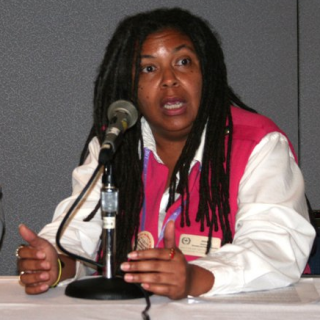Experiential Learning "E", "S" and "R"
By Ted Resnikoff
Jessica York, Youth Programs Director for the UUA contributes this post on how to make the most of a mission trip or experiential learning experience. -Ed.
With Spring Break fast approaching and summer close behind, many youth groups are making plans for mission trips or experiential learning experiences. To increase the possibility that this trip will be a transformative faith development experience, consider thinking of the trip as composed in three parts: education, service, and reflection.
Let me illustrate through my own experience. I took my first mission trip as an adult, not a youth, but I would argue that youth have the same needs as I did. I was a participant in an educator’s tour with Heifer Project, International. This trip started my interest in developing meaningful immersion experiences.
Eager as all participants were to get to Honduras, we first had two days of an educational program. I thought I knew a lot about the organization – I learned much more during those two days and I also learned about Honduras. We learned more yet in Honduras, as every grassroots organization we visited spoke to us about why their work was necessary to build a more just Honduras.
Step 1: Educate participants on the culture and environment of the location and provide age-appropriate background of the root causes of the justice issues with which you will engage. Let participants learn directly from the people involved as much as possible. Not only is it more interesting to hear diverse and new voices, but their passion can be catching. Talking to the people you are working with will undoubtedly include personal story telling: the earliest teaching method of humans and probably still the most effective.
For some reason, Heifer did not include time for us to provide hands-on service during the tour. I don’t know why: maybe they thought teachers would be soft! I can tell you that most of us were itching to actually work with the communities we visited. When you’re planning your mission trip, I know you won’t make the same mistake.
Step 2: Serve with the communities you visit. This is service with not service for. Make sure the service you are providing is something actually needed and asked for by the local community.
Step 3: Reflect. When your schedule is tight or you are tired at the end of the day, it is easy to skip this step. Yet, remember that experience is not the best teacher if you do not reflect on what you learned by the experience. Reflection also creates space for asking other questions, such as “What does this experience mean for me as a UU?” and “Knowing what I now know, what do I feel called to do about it – not just today, but in the future?” Questions such as these lead to growing social conscious souls. Questions like these can lead to life-long commitments to be agents of change in the world. And isn’t that what you want?
Jessica York serves as Youth Programs Director at the Unitarian Universalist Association.
Jessica York serves as Youth Programs Director at the Unitarian Universalist Association.

